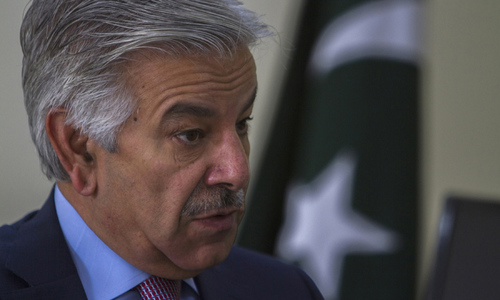ISLAMABAD: The Foreign Office believes that Pakistan’s participation in the Saudi-led 39-nation military alliance will not compromise its long-standing policy of neutrality in Middle Eastern affairs as the alliance is being built to fight terrorism.
“You are talking about two different things. The basic purpose of this force is (to) counter terrorism,” FO spokesman Nafees Zakaria said at his weekly briefing when asked if Islamabad had given up the policy of neutrality in the Middle East by joining the alliance.
However, he noted that the “terms of reference” guiding activities of the alliance were yet to be finalised.
One of the main objections to Pakistan’s involvement with the alliance pertains to the lack of clarity about the terms for the force’s employment and engagement.
‘Terms of reference’ guiding activities of Saudi-led alliance are yet to be finalised: spokesman
Clarifying ambiguity created by the government’s continuous vacillation in public on the question of whether or not Pakistan was part of the Saudi-led alliance formed in Dec 2015, the spokesman said: “We are already part of it.”
The government has recently allowed former army chief retired Gen Raheel Sharif to lead the alliance’s military force, which is yet to be formed, as its commander.
Mr Zakaria refused to comment on the development. “I have seen the statement made by the minister of defence. I don’t think after what has been said by him and the things which have been discussed in the parliament, I have anything to add,” he said.
Moscow meeting
Asked about Pakistan’s participation in the regional meeting for peace in Afghanistan, to be hosted by Russia on April 14, the spokesman said it was in “accordance with our policy of constructive engagement at all forums relating to Afghan peace”.
He, however, noted that the quadrilateral process involving the US, Pakistan, China and Afghanistan remained “an effective forum”.
It has been almost a year that the Quadrilateral Coordination Group members have not met following the killing of Taliban chief Mullah Akhtar Mansour in a drone attack in Pakistan.
Mr Zakaria also emphasised the importance of bilateral contacts between Pakistan and Afghanistan and referred to the recent meeting in London that helped ease the impasse in ties over terrorist sanctuaries and subsequent reopening of border crossings.
“The London meeting between the adviser (to the prime minister on foreign affairs) and Afghan National Security Adviser Hanif Atmer underscored the importance of a bilateral cooperation mechanism to address counterterrorism and border management issues in an amicable manner,” he said.
In reply to a question about the fencing of the border with Afghanistan, the spokesman said: “We need to take necessary measures to check terrorism as it is affecting people of both countries. For this to happen, effective border control management is imperative.”
The army had announced last week that it had started partially fencing the border with Afghanistan, particularly areas vulnerable to cross-border attacks from terrorist sanctuaries on Afghan soil. The decision to fence the border had been taken at a national security meeting chaired by the prime minister earlier this month.
Jinnah House
The spokesman said Pakistan expected that the Indian government would ensure protection of Jinnah House — a property owned by Quaid-i-Azam Mohammad Ali Jinnah.
A Bharatiya Janata Party legislator, Mangal Prabhat Lodha, last week demanded that the building constructed on 2.5 acres of land in Mumbai be demolished and replaced with a cultural centre.
“Pakistan has repeatedly expressed its desire to take possession of the property. The government of India should respect the ownership rights of the government of Pakistan in this regard.
“On various occasions, the Indian government has promised to hand over the property to the government of Pakistan but has not fulfilled their commitment yet,” Mr Zakaria said.
Published in Dawn, March 31st, 2017













































